Jean-Pierre Melville’s Le cercle rouge (1970): Criterion Blu-ray review
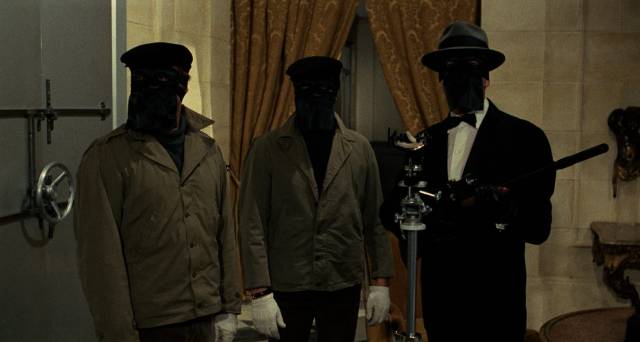
Jean-Pierre Melville was an outsider in the world of French cinema. Although he applied for admission into the industry as an assistant director after the war, he was rejected. So he decided to go ahead and do things his own way. He set up his own production company and made his first film, a documentary short about a circus clown, in 1946. His first feature, Le silence de la mer (1949), was unusual in a number of ways, not least in having been adapted from a short novel by Jean Bruller (published in 1942 under the pseudonym Vercors) without first obtaining the rights. It’s a subtle treatment of the psychological dimensions of occupation and resistance in which a German officer is billeted with a retired man and his niece. Surprisingly, given that it was made so soon after the war, its portrait of the German is sympathetic and as the three are stuck together in the same small house, the French pair come to see their shared humanity, while his exposure to them changes his perspective on his own nation and he becomes appalled by his countrymen’s brutality.
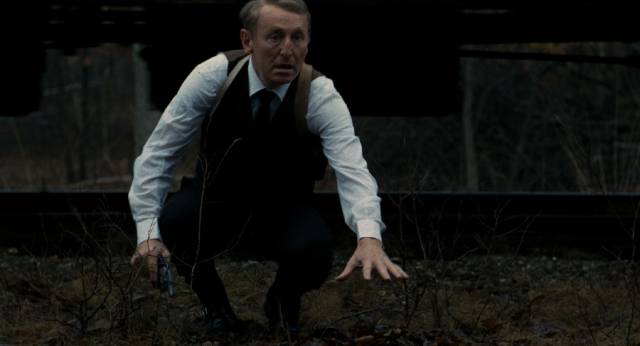
The success of Le silence de la mer prompted Jean Cocteau to approach Melville to direct an adaptation of his 1929 novel Les enfants terrible. This, in retrospect, seems an odd idea. Cocteau’s hothouse poetry is at odds with Melville’s psychological realism, but the film is nonetheless a fascinating study in the solipsism of privilege, its central characters, a brother and sister, trapped in an increasingly perverse game which puts them at odds with the world beyond the walls of their mansion.
With his second film less financially successful than the first, and more importantly with him viewed as an amateur by the film establishment, Melville did with his third what many idiosyncratic filmmakers do – he tried to prove himself to that establishment by making a deliberately commercial movie, one which he himself dismissed. The key to his cinematic identity came with what followed, his first film based on an original script, one centred on a criminal underworld which he would return to repeatedly over the next decade and a half. Bob le flambeur (1956), a heist movie about a plan to rob a casino, was Melville’s initial declaration of his love for American gangster movies and films noirs – a love confirmed by his next film, Two Men in Manhattan (1959), in which Melville himself plays a reporter looking for a missing French diplomat in New York.
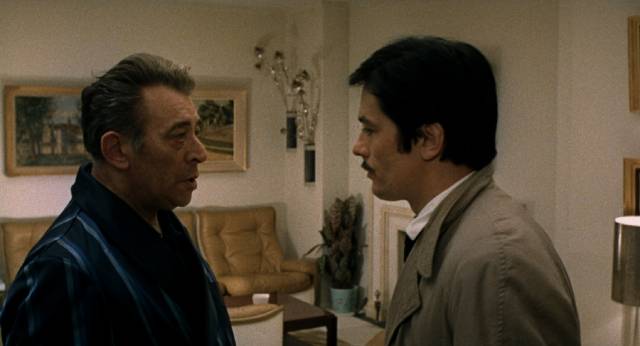
Partially shot on location in New York, the film deals with questions of moral responsibility under the shadow of the Occupation and Resistance, themes to which he returned in Léon Morin, prêtre (1961) and most extensively in Army of Shadows (1969). Between those films, he devoted himself to a series of crime movies which, while they evoke Hollywood in subject matter, stylistically reflect the austerity of Japanese cinema. In his attention to the moral ambiguities of criminals who have honed their skills with a determined professionalism, Melville strips narrative and character psychology to their essence, discarding embellishments and decorative touches. Dialogue is pared to a minimum and serves an essentially utilitarian rather than revelatory purpose. In general, we know little or nothing of these characters’ backgrounds; they exist in the present, unencumbered, focused intently on the task at hand whether that’s a robbery or a contract killing.
Having made his final complex statement about the Resistance in Army of Shadows, Melville embarked on what amounted to a summation of what he had learned about the cinema of crime with his first original script since Two Men in Manhattan (everything in between having been adapted from another writer’s work). Le cercle rouge (1970) is a heist movie made with all the precision of the job the characters undertake to clean out a jewellery store in Place Vendome in Paris.
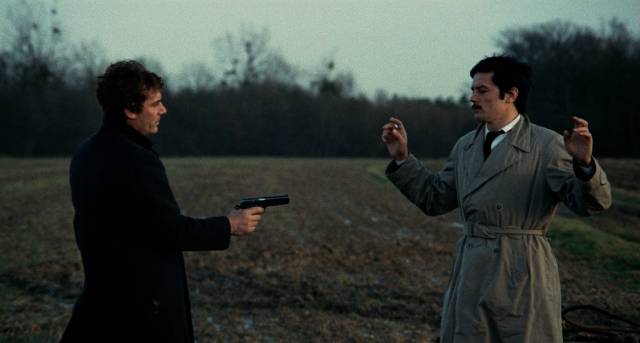
The film starts with a text declaring that Siddhartha Gautama once explained, having drawn a red circle in chalk, that men who are destined to meet, whatever their individual paths, will one sad day inevitably come together in the red circle. Melville made this up. A sly joke to add an air of gravitas to what follows, perhaps, but it also encapsulates the film’s narrative structure and the air of fatalism which hangs over the characters.
There are four main characters and we meet them in turn on their own individual trajectories, which whether by chance or the dictates of fate eventually converge, leading to a final bloody encounter. First, there’s Corey (Alain Delon), who is approached by a prison guard on the eve of his release. The guard proposes a robbery, which should be a slam dunk. But before undertaking the job, Corey goes to visit Rico (André Ekyan), an associate he didn’t betray during his trial, but who has taken up with Corey’s girlfriend while he was in prison. Corey doesn’t want her back, taking Rico’s money and gun instead. Not happy with this, Rico sends a couple of gunmen after him.
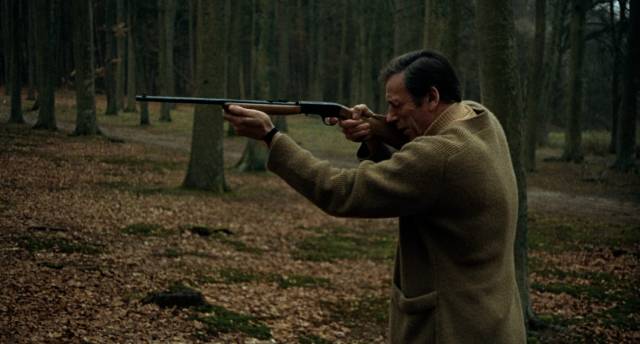
Next, there’s Vogel (Gian Maria Volontè) boarding a train handcuffed to Commissaire Mattei (Bourvil), being taken back to Paris for unspecified crimes – later, after Vogel’s escape, Mattei comments that the manhunt will be limited because he’s “not Claude Tenne”, a reference to a member of the OAS who had been convicted for his activities during the military opposition to the government’s capitulation during the Algerian war; this suggests that whatever Vogel’s crimes might be, they’re political in nature. When he escapes from the train, Mattei has to face the censure of his boss, the Inspector General of Police (Paul Amiot), for his failure. His dogged pursuit of Vogel will draw him too towards that final red circle.
When Corey stops for a meal on the road to Paris, Vogel, running from the police who are equipped with dogs and a helicopter, manages to hide in the trunk of Corey’s car. Having managed to make it through a police checkpoint, Corey pulls off into a muddy field and tells Vogel he can come out. The fugitive emerges with a gun, distrustful though it’s obvious that Corey knew he was hiding in the car and risked his own safety by driving through the checkpoint anyway. Only when Corey offers him a cigarette does Vogel relax, and they resume the journey to Paris.
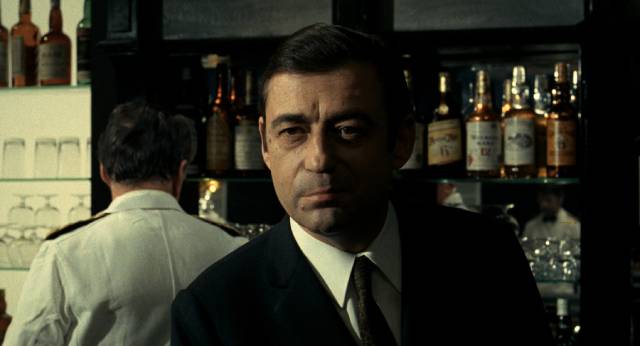
And so the plan slowly comes together, with nightclub owner Santi (François Périer) connecting Corey with a fence who can receive the loot and also with a marksman who will be necessary for a particular aspect of the plan – this is former cop Jansen (Yves Montand), kicked off the force and now an alcoholic. We first meet him filthy and delirious in his room as spiders, snakes and lizards swarm towards him from the closet. This moment of purely subjective imagery stands out as strikingly at odds with Melville’s coolly detached, objective approach to everything else in the film.
The extremity of Jansen’s delirium also seems jarring in contrast to the way he so quickly pulls himself together when offered the chance to take part in the robbery – the responsibility given him by Corey is an opportunity for redemption, a way to regain self-respect, but the rapidity of his recovery is perhaps the one false note in the film, although Montand’s performance makes it almost plausible in the moment.
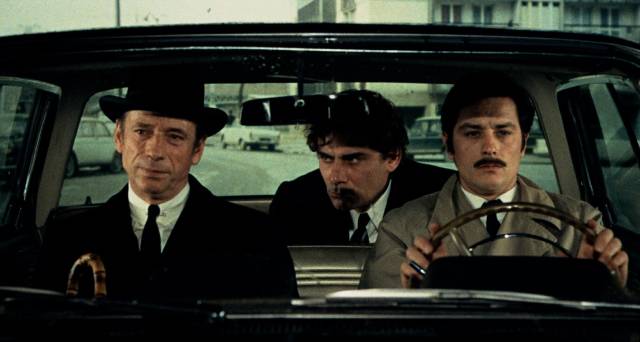
The three-man team carefully lay their plans, but Mattei is gradually closing in, with the semi-respectable Santi the point of vulnerability which will lead to the climactic unravelling of the heist. But before it goes wrong, it all goes beautifully right in what is not just one of the finest sequences in Melville’s work, but in the entire body of crime cinema. The heist itself, carried out with precision, is a remarkable piece of visual storytelling, a 26-minute sequence without dialogue in which Melville observes with cool admiration the details of the job these three men perform with flawless professionalism. This is the heist in its essence. It’s exhilarating to see everything going exactly according to plan, even though we know from the entire history of the genre that such perfection is only momentary, that the follow-through will go badly wrong.
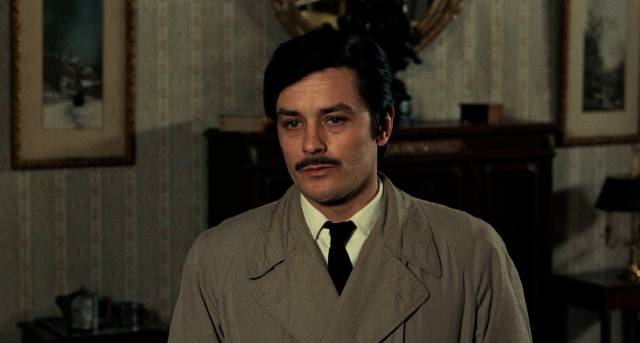
This pattern was laid down long ago when the rules of cinema dictated that criminals should never get away with their crimes, but by the late ’60s that imperative had crumbled. Cool criminals could now very much get away with the loot. But in the world of Le cercle rouge failure is written in the narrative genes. Men make mistakes and the consequences of those mistakes accumulate – Corey’s visit to Rico and the taking of his old partner’s money leads to the moment when Rico’s men catch up with him on a deserted road, where they are about to kill him when Vogel instead kills them, the bodies and car later found by the police, with the deaths offering Mattei a clue which in turn leads to Santi, taking the Commissaire a step closer to the planned robbery … and so on, detail by detail piling up on the way to the final confrontation between the trio and Mattei, by which time the bonds which have formed between Corey, Vogel and Jansen doom them because neither man is willing in the end to abandon the others in order to save himself.
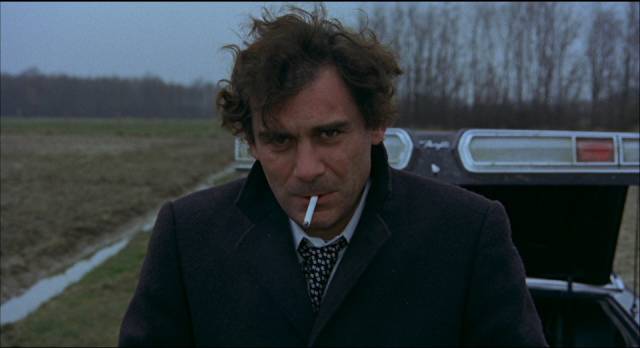
Although key actors were not Melville’s first choice – he had originally wanted Lino Ventura for Mattei, Paul Meurisse for Jansen and Jean-Paul Belmondo for Vogel – the cast is flawless (though Melville hated Volontè, who in turn intensely disliked the director), creating an ensemble which supports the precise construction of the narrative. Despite whatever conflicts existed behind the scenes, Le cercle rouge emerged as the quintessential heist movie, a meditation on the intersection of professionalism, personal loyalties and the problematic morality of both criminals and police – as the Inspector General tells Mattei when he says he’s not sure of Vogel’s guilt, “All men are guilty. They’re born innocent, but it doesn’t last.” When Mattei concurs after the final shoot-out, he accepts that the judgment applies to himself as much as to the criminals.
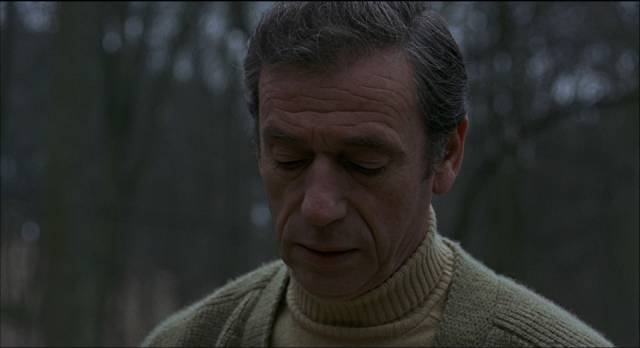
*
The disk
Criterion’s new release (they first released the film on DVD back in 2003) comes in a dual-format 4K UHD/Blu-ray edition. The 4K disk is mastered from a new restoration by StudioCanal, but I’m not sure whether the Blu-ray is also mastered from that restoration or whether it’s simply a duplicate of Criterion’s 2011 Blu-ray release, whose contents it duplicates. I can only judge by screen captures I’ve seen on-line which suggest some differences in contrast and colour values between the 4K and the Blu-ray, but the Blu-ray image nonetheless has a film-like texture with authentic-looking grain. The mono soundtrack has depth, adding presence to the quietest scenes.
The supplements
The disk extras duplicate the original DVD release. It’s a pity they haven’t added a commentary (or licensed the BFI’s commentary by Ginette Vincendeau), but the interviews from 2003 with writer Rui Nogueira, author of a 1971 book of interviews with Melville (26:14), and assistant director Bernard Stora (30:14) are very informative about Melville’s approach to directing and the issues he had with various cast members.
In addition there’s an archive of contemporary television material featuring interviews and on-set coverage of the production totalling just over fifty minutes.
There’s also a trailer (1:54) and the booklet, which also has no new material, contains essays by Michael Sragow and Chris Fujiwara and an appreciation by John Woo, all from 2003, plus interviews with Melville and composer Eric Demarsan.
Comments